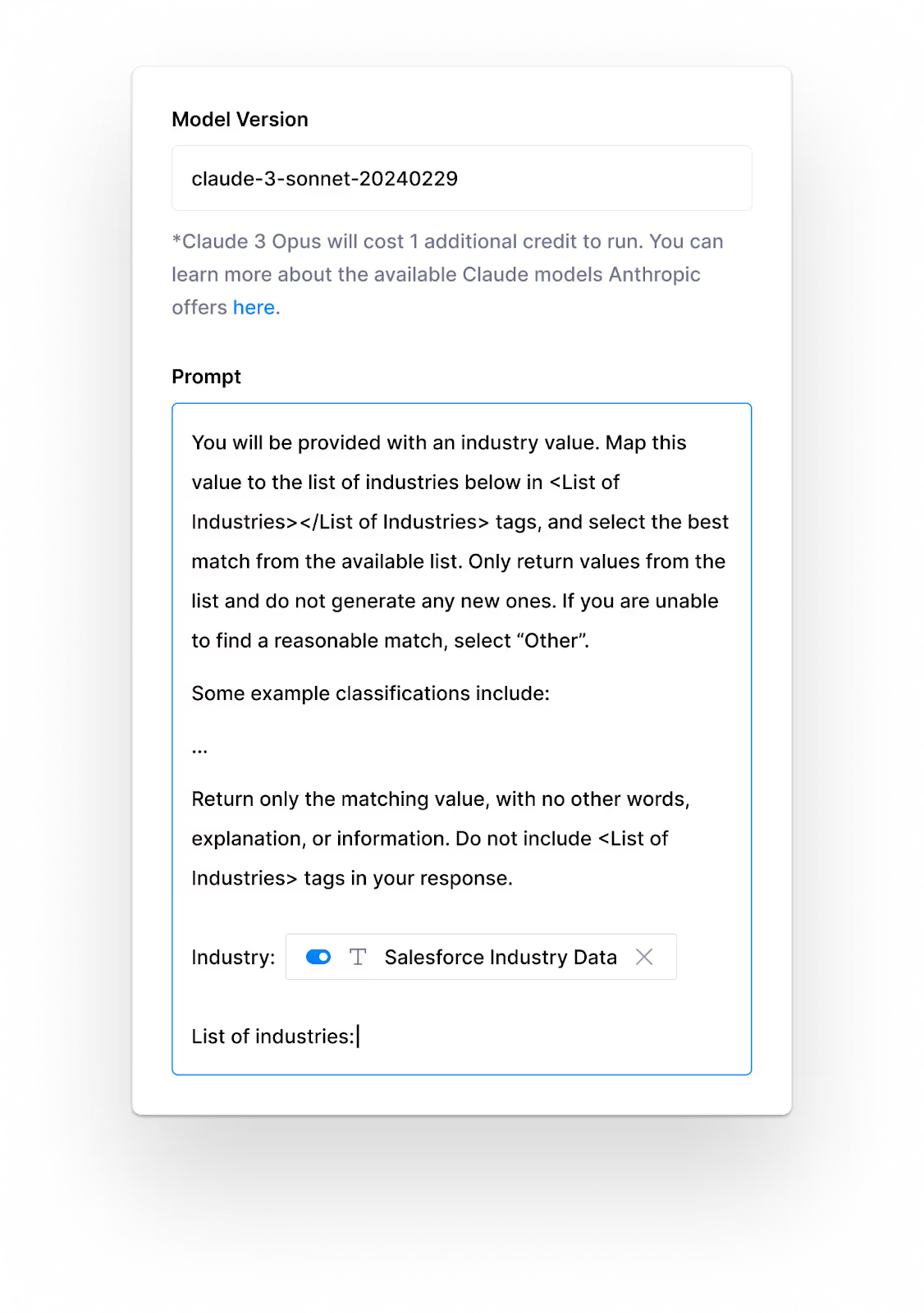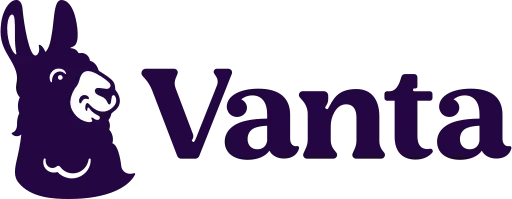"Clay has changed how we handle RevOps. We're doing things we never thought possible, and our team can focus on what matters instead of data entry."
Anthropic, founded in 2021, is the trailblazing AI safety and research company behind the popular LLM Claude, with the mission to build reliable, interpretable, steerable AI systems.
Artificial Intelligence (AI)
San Francisco, California, USA
Anthropic has a lean go-to-market team tasked with handling a stunningly high volume of inbound interest. When we first met the team, the inbound interest form was just a few weeks old—but already generating a massive flood of leads, combined with signups from Amazon Bedrock, Google Vertex AI, and their own API. As happy customers of Anthropic, we were excited to help Adam Wall, Anthropic’s first Head of Sales Operations, build the fast-growing company’s data enrichment and scoring pipeline from scratch with Clay, eliminating their need for external enrichment vendors and manual work.
Impact TLDR:
- 3x’d data enrichment coverage on contact information, firmographics, and more
- Improved lead scoring with custom fields (generated by Claude in Clay)
- Saved 4 hours a week by automating all SFDC opportunity upserts
- Saved countless hours a week automating all inbound lead enrichment and scoring
- Consolidated vendors and canceled top data provider contract
A small GTM team with a massive flood of leads

With a small team, Anthropic's sales team needed to be focused around inbound leads. It was important to identify and reach out to them quickly to capitalize on open opportunities.
Organizations faced with this issue usually do one of two things: (A) give up and ignore their inbound leads, or (B) hire massive teams of people to spend hours of manual labor sifting through and researching lead lists. With the appetite to grow and a team of just a handful of AEs, neither was an option for Anthropic.
Before Clay, one person on Anthropic’s team ran a very manual process to qualify and route leads across the startup sales representatives, loading companies into Salesforce by hand. The team was running leads through a major industry standard data provider, but were experiencing data gaps and struggled with manual deduplication.
Adam implemented Clay to intelligently automate all lead enrichment and scoring—saving his sales team’s time for the highest leverage activity: directly working with interested prospects.
Auto-enrich all inbound leads

Adam used Clay to auto-enrich all of Anthropic’s inbound leads with data points like emails or phone numbers, company domain, size, funding round, and more. He pushed fully-enriched records into Salesforce, where the data became part of the organization’s scorable sales pipeline. “Even if we enriched every lead, we wouldn’t have bandwidth to handle everyone,” said Adam. “So scoring became super important.”
“Clay made it really easy to experiment with different data enrichment vendors in one place,” Adam said. “We've had a 3x better match rate by using a combination of providers through Clay than we had with just our single provider before.” Anthropic was able to consolidate vendors, accessing 100+ other data providers with Clay credits.
Adam has also used Clay to clean multiple types of data, standardizing firmographic and contact information before piping in into Salesforce. That includes turning revenue ranges into integer values, setting specific formatting for company names, etc, using formulas and even AI.
Build unique customer segmentation with custom industry categories

Each business has unique offerings that warrant unique targeting and segmentation. Unfortunately, most companies are stuck using out-of-the-box filters on industry data. Industry categories are notoriously unreliable. Categories are often also too broad to be meaningful—you might find both Anthropic and Ulta Beauty grouped under the label of “technology companies.” Different providers also use different terminologies, like “IT,” “Software technology,” or “Internet technology.”
To narrow down on their actual ICP, Anthropic uses Claude in Clay to categorize their prospects’ industries as 1 of dozens they have on their custom defined list.
“Being able to deploy Claude in Clay helps us customize our industry tags programmatically,” Adam shared. “We now have an automated, evergreen mapping of industry taxonomy that never requires active maintenance.”

As the company’s ICP evolves and they hone in on specific audience types, Anthropic can easily update their existing taxonomy with terms that better fit their emerging customer base. One single adjustment in their Clay table can programmatically redefine every record in their CRM.
Besides generating industry names, Anthropic also uses Claude within Clay tables to apply and structure more subjective segmentation. For example, Claude's great at taking some inputs like company description and combined with its own knowledge answering whether a company is primarily B2B or B2C, PC or mobile-first, or any other number of classifications that might not exist in a structured format.
Convert personal to work emails to enrich all PLG signups

Many people have signed up for Anthropic’s public access products. Mixed in with the huge numbers of individuals, students, and solo players are power-users from relevant companies that could be ripe for higher tier offerings. Finding them, however, is notoriously challenging: PLG signups often use personal emails, which are very difficult to map to work emails and company domains.
🕵️ Get template: Find someone’s work email based on a personal email

With Clay, Adam was able to translate personal email signups into work emails. That, in turn, unlocked the ability to enrich company domains to find relevant information about size, funding rounds, etc.
“Chaining together Clay’s data waterfalls helped us translate personal emails to work emails, unlocking the ability to do custom company research with complex logic and display formats. Without Clay, this would’ve been an incredibly cumbersome process—and we likely wouldn’t have bothered trying,” he shared.
Conditionally upsert opportunities in SFDC

For many organizations, the process of creating and updating opportunities in Salesforce is more complex than it initially appears. Lead lists can originate from various sources, such as industry events, marketing campaigns, referrals, or purchased databases. Traditionally, before uploading these leads into Salesforce, a team member would need to meticulously compare each list against existing opportunities and accounts in the company's CRM.
Adam used Clay to automatically execute a step-by-step workflow:
- Look up each opportunity in Salesforce matching off of the company domain..
- If it already exists, update the opportunity.
- If it doesn't exist, create a new opportunity. Also create an account record to pair with the opportunity.
"Using Clay to automate this multi-step data upload into Salesforce helped us turn this 3-4 hour process into a matter of ten minutes," Adam shared.
Clay’s impact on Anthropic’s GTM workflows
Clay has helped Anthropic significantly improve their lead enrichment and sales data pipelines. The team has been able to consolidate their tech stack to core essentials, including tools like their CRM, Clay, and email tools, with three core benefits:
- Better data enrichment: A 3x increase in enrichment coverage, including custom-defined fields, providing a more comprehensive view of potential customers.
- Time saved: SFDC upserts automation saves 4 hours per week, while the streamlined inbound lead enrichment and scoring process saves countless more.
- Vendor consolidation: Access to 100+ data providers through Clay has allowed Anthropic to simplify their tech stack. Rather than constantly evaluating new vendors as enrichment needs arise, Anthropic instead benefits from Clay's internal data team constantly focusing on acquiring new providers.
With more complete data, Adam can now analyze their sales pipeline in new ways. “With Clay, I’ve helped enable many cuts of reporting that would’ve been otherwise impossible. Now, we can easily do things like analyze our pipeline by the number of customers over or under a certain revenue size,” Adam shares.
As Anthropic's GTM team continues to drive significant growth, the workflows they’ve built in Clay ensure their processes can scale efficiently without compromising data quality. They can quickly change how they collect and organize data as their needs evolve.
Anthropic’s lean sales team is able to live in Salesforce, getting enriched, clean data without leaving their CRM. Clay allows them to skip manual, rote work and focus their time on talking to potential customers.
Explore more customers
Discover how users leverage Clay to uncover distinctive data and use data in innovative strategies to succeed.
Streamline data enrichment
Leverage 100+ data sources and an AI agent with 140M monthly runs.

























.avif)

.avif)









.avif)







.avif)









